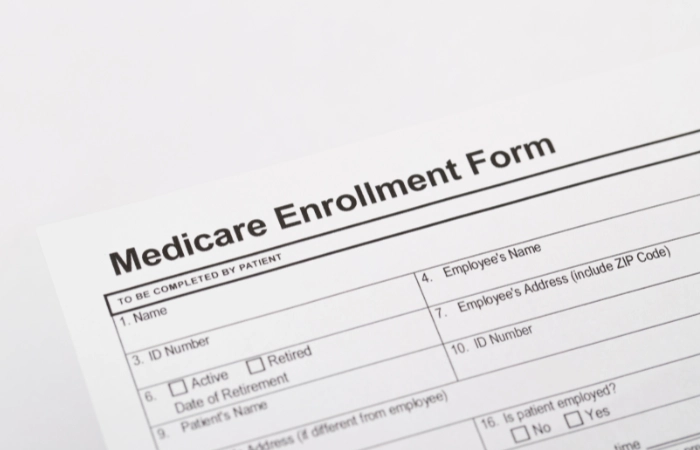
Are you wondering if you’re eligible for Medicare? Understanding the eligibility requirements is crucial, whether you’re approaching retirement age or dealing with specific health conditions. This article explores the basics of Medicare, a vital program providing healthcare coverage to millions of Americans, primarily those aged 65 and older and younger individuals with specific disabilities or medical conditions.
Read on to learn about who qualifies for Medicare, what the program covers, and what steps to take if you find you’re not eligible. Whether it’s through age, disability, or other qualifying factors, we’ll help you navigate the complexities of Medicare eligibility.
What Is Medicare?
Medicare is a federal health insurance initiative in the United States, mainly for people aged 65 and older. It also helps younger individuals with certain impairments and those with end-stage renal conditions or amyotrophic lateral sclerosis. The program consists of different parts: Part A covers hospital stays, Part B covers doctor visits and outpatient care, Part C offers an alternative way to receive benefits through private health plans, and Part D includes prescription drugs. Established in 1965, Medicare helps alleviate the healthcare costs for millions, ensuring access to essential medical services for eligible Americans.
What Makes You Eligible for Medicare?
There are several factors that make an individual eligible for Medicare. It is designed to assist different groups based on age, disability, and specific health conditions. Understanding these eligibility criteria can help individuals plan for their healthcare needs.
1. Age
The central eligibility criterion for Medicare is age. Once an individual turns 65, they are eligible to enroll in Medicare. This age-based eligibility does not depend on employment status, income, or health condition. Upon reaching this milestone, individuals can sign up during their Initial Enrollment Period, which is initiated three months before their 65th birthday and ends three months after. Coverage can include both hospital insurance (Part A) and medical insurance (Part B).
2. Disability
People under 65 can qualify for Medicare if they have been receiving Social Security Disability Insurance (SSDI) for 24 months or have certain conditions. This includes those diagnosed with Amyotrophic Lateral Sclerosis (ALS) or End-Stage Renal Disease (ESRD). For ALS patients, Medicare eligibility begins the month their disability benefits start. For those with ESRD, they must apply for Medicare, which usually starts in the fourth month of dialysis treatment or earlier if they participate in home dialysis training.
3. Work History
Eligibility for premium-free Part A is generally granted to those who have accrued at least 40 credits from working and paying Medicare taxes, roughly equivalent to 10 years of work. If someone has fewer than 40 credits, they can still enroll in Medicare but will have to pay a premium for Part A. Spouses can also qualify for premium-free Part A contingent on their partner’s work record, provided the partner has the necessary credits.
4. Residency
To be eligible for Medicare, one must be a U.S. citizen or a permanent legal resident who has lived in the United States for at least five continuous years. This requirement ensures that the beneficiaries have substantial ties to the U.S., making the system sustainable and fair.
5. Spousal Benefits
Individuals may also qualify for Medicare through their spouse’s work history, which is particularly important if they do not have enough credits themselves. If married, one can qualify at age 65 if their spouse is at least 62 and has sufficient credits. This also applies to divorced individuals if the marriage lasted at least ten years and to widows or widowers if the deceased spouse had enough credits.
What to Do If You’re Not Eligible for Medicare?
If you find yourself ineligible for Medicare, it’s important to explore other health insurance options to maintain coverage and access to healthcare services. There are various alternatives available depending on your financial situation, employment status, and health needs. Here are some viable choices to consider:
• Explore Medicaid Eligibility
Medicaid provides health coverage to people with limited income and resources, and eligibility criteria vary by state. If you qualify, Medicaid can significantly reduce your healthcare costs, covering services like hospital stays, doctor visits, and even long-term care. Applying is generally straightforward, and you can do so through your state’s Medicaid office or healthcare website.
• Consider the Health Insurance Marketplace
The Affordable Care Act (ACA) designated health insurance marketplaces where individuals can buy subsidized health insurance. These subsidies help lower the costs of premiums, making health insurance more accessible. The Marketplace is particularly beneficial for those who don’t have access to Medicare, Medicaid, or employer-sponsored insurance. Plans vary in coverage levels and premiums, so it’s essential to compare options during the open enrollment period or after qualifying life events.
• Look into Employer-Sponsored Health Insurance
Many employers offer health insurance as a portion of their benefits package. If you’re employed, inquire about available health insurance options. Employer-sponsored insurance typically comes at a lower cost to employees due to the employer’s financial contribution. Additionally, these plans often provide comprehensive coverage, which can include health, dental, and vision care. Understanding why health insurance is essential can help you make informed decisions about your coverage.
• Join a Spouse’s Health Plan
If you are married and your spouse has an employer-sponsored health plan, you might be eligible to be added to their plan. This is often a cost-effective way to obtain comprehensive health insurance. Check with the employer about the specifics of joining a spouse’s plan, including any potential waiting periods and the additional cost of premiums.
• Research Short-term Health Insurance Plans
For those needing temporary coverage—perhaps due to a job transition or other short-term gap—short-term health insurance might be suitable. These plans can provide coverage for several months, with some extending up to a year. Be aware that short-term plans typically offer less coverage than standard health insurance plans and may not cover pre-existing conditions.
FAQs

Can I enroll in Medicare if I’m still working at age 65?
Yes, you can still enroll in Medicare when you turn 65, even if you are currently employed. Your work status does not affect your eligibility. Depending on your employment situation, you may choose to delay Part B enrollment if you already have coverage through your employer.
What occurs if I miss my Initial Enrollment Period for Medicare?
If you miss your initial enrollment time, you can sign up during the General Enrollment Period, which is conducted from January 1 to March 31 each year, with coverage starting July 1. However, you may face a late enrollment penalty for Part B and Part D if you don’t have other credible coverage.
Can I receive Medicare coverage if I am under 65 and do not have a disability?
Generally, Medicare coverage under 65 is limited to individuals who have specific disabilities or health conditions such as ALS or ESRD. However, individuals under 65 without these conditions generally do not qualify for Medicare until they reach the age of 65, except in rare circumstances, such as having a disability or receiving SSDI benefits. For broader coverage options, they may need to explore other insurance plans like those offered through the Health Insurance Marketplace.
Conclusion
Understanding if you’re eligible for Medicare is crucial for ensuring you have access to necessary health services as you age or face specific health conditions. By familiarizing yourself with the criteria for age, disability, work history, and residency, you can effectively prepare for your healthcare future and navigate the complexities of this essential federal program.
If you’re seeking personalized guidance on Medicare, AHG Brokers, the best health insurance broker in Tampa, can assist you. Our experts are ready to help you understand your options and secure the right Medicare coverage to meet your needs. Contact us today to get started!

